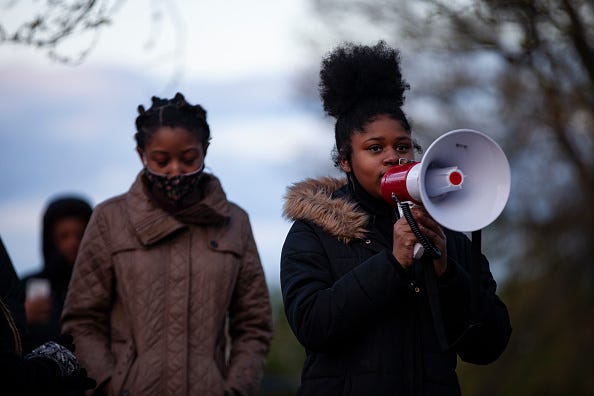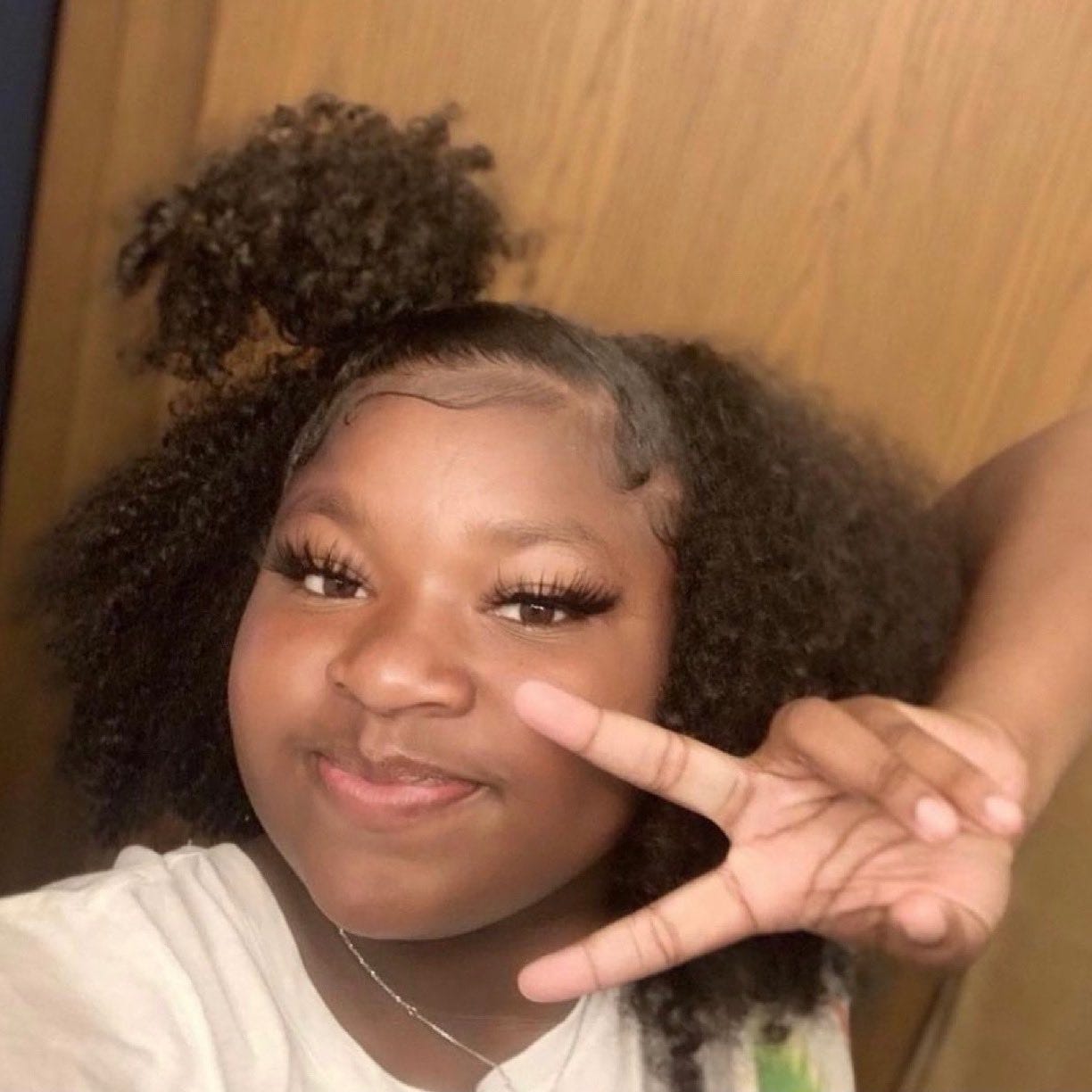Watching Ma’Khia Bryant Online
TikTok videos that were initially a representation of joy, a sign of personal agency, and a display of care become a relic to a life that could’ve been.
I’m always thinking about Black girls who aren’t famous in Hollywood or on the internet, maybe not thriving by the world’s scrupulous standards but existing on their own terms, and when exactly we as the public get to encounter them. And then I realized we often don’t encounter them in the public spheres of Hollywood and the internet until they’re no longer here.
Lately, I’ve been encountering these young Black girls on TikTok. It’s riveting to experience someone be both off the cuff but pointed in speaking with their words or bodies. Meeting Ma’Khia Bryant through this medium after her death brought me to the realization that as various police officers across the globe continue to murder children and teens, we are going to see even more videos outside of the moment of death that will immoralize them.
Before I was a beauty reporter, I was a social media editor in newsrooms. Being so close to the digital ground has informed my reporting because of how I’ve witnessed people engage with content online. Social platforms evolve with the demand to keep us emotionally invested. Older platforms imitate product features of newer platforms as a way to stay a part of an individual’s phone diet.
I’m breaking this down in basic terms I’m sure many of you experience first hand so that we can arrive at another basic fact that needs illuminating: if a teenage Black girl is shot by a police officer in 2021, we will likely not just see stills of her with loved ones, but videos of her caring for herself. We may watch videos of her shaping a style with gel, pointing to the precision of her part, or swaying to a song she’s listened to a million times because that's what teenagers do. That is what we do. We care for what we can control, and we watch each other do it too.
Watching Ma’khia’s videos is a surreal experience because those pixels are not the full story, and we, the public audience, are aware of this by now. So you start to imagine other parts of her. Although there’s so much about her life we don’t know yet, we know that she was in foster care and looked forward to being reunited with her mother. You start to think of the specific circumstances that make her life unique, hard, confusing. You wonder what she likes and doesn’t like, and about the people closest to her. You wonder where else she’s been, physically and spiritually, and the final hours of her life and her environment before she stepped outside. You wonder all these things because although you are not the holder of Ma’Khia’s life, your experiences are connected. So the world you imagine is one with Ma’Khia in it, even if you didn’t know her. Explaining empathy is the only way I know how to go about taking on this matter.
Eventually, you begin to imagine a different destiny for Ma’Khia. Another route where she’s still giving that cheeky smile. You long for that, and you wonder. For Ma’khia’s friends, pictured below, that is far more real. They are now fixed with the job of being the mouthpieces of a beloved friend, and those responsible for taking care of her existence in ways only they know how.

Ma’khia’s TikTok account no longer exists, but because users have edited their own tributes, she’ll remain on the platform, searchable through hashtags.
TikTok videos that were initially a representation of joy, a sign of personal agency, and a display of care become a relic to a life that could’ve been. The video archive of Black teenage life in the face of police murder and violence continues to expand.





